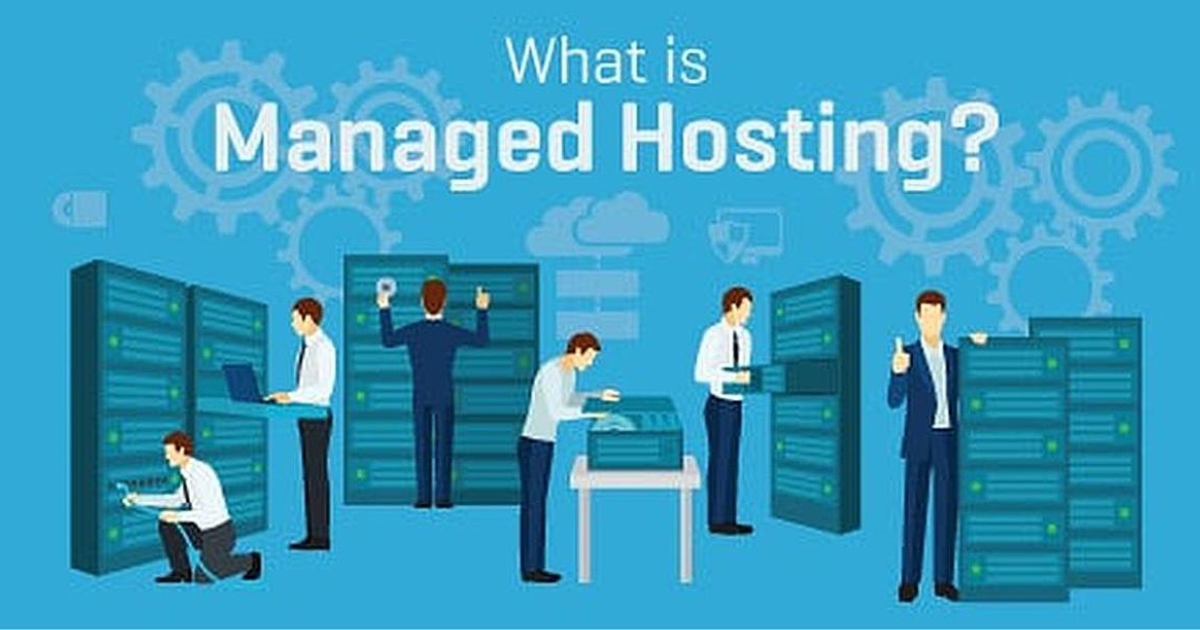If you’re looking for hassle-free website hosting, managed hosting might be the perfect solution. It provides expert support, enhanced security, and optimized performance while taking care of technical aspects like maintenance, updates, and monitoring. In this guide, we’ll explore everything you need to know about managed hosting.
Managed hosting is a service where the hosting provider handles the technical aspects of server management, security, backups, and updates so that users can focus on their business or website without worrying about backend maintenance.
- The hosting provider sets up and maintains the server.
- Security patches and updates are installed automatically.
- Performance optimization and monitoring are handled by experts.
- Regular backups are performed to prevent data loss.
- Ideal for small businesses and blogs.
- The hosting provider manages the server while multiple users share resources.
- Affordable but limited in scalability.
- Provides a virtualized private server with dedicated resources.
- More control and flexibility compared to shared hosting.
- Great for growing businesses needing more power.
- A full server is allocated to a single client.
- Best for large enterprises with high traffic.
- Offers superior performance, security, and customization.
- Uses multiple cloud-based servers for scalability and reliability.
- Automatically adjusts resources based on traffic demand.
- Ideal for e-commerce and high-traffic websites.
- Specifically optimized for WordPress sites.
- Includes automatic updates, caching, and security enhancements.
- Best for bloggers, small businesses, and developers using WordPress.
- 24/7 customer support for troubleshooting.
- Server maintenance is handled by experienced professionals.

- Firewalls, malware scanning, and automatic security updates.
- Regular vulnerability assessments and DDoS protection.
- CDN integration, caching, and load balancing for faster page speeds.
- Advanced server configurations for optimal resource utilization.
- Automated backups ensure data safety.
- Easy restoration in case of system failure.
- Resources can be upgraded as traffic grows.
- Ideal for businesses expecting fluctuations in web traffic.
- Secure, high-performance hosting for online stores.
- Helps prevent downtime and security breaches.
- Hassle-free hosting allows users to focus on content creation.
- WordPress optimization ensures fast-loading sites.
- Dedicated resources provide superior reliability.
- Custom configurations meet specific business needs.
- Allows developers to focus on building applications.
- Advanced tools for server customization.
- Look for SSD storage, high uptime (99.9%+), and CDN integration.
- Ensure firewalls, malware scanning, SSL certificates, and DDoS protection.
- Choose hosting that offers daily, weekly, or on-demand backups.
- Look for 24/7 support via chat, phone, or email.
- Ensure your hosting plan allows for easy resource upgrades.
- Ideal for small businesses and bloggers.
- WordPress-optimized with automatic updates.
- Strong security features with daily backups.
- Great for WordPress and WooCommerce sites.
- Premium cloud-based hosting on Google Cloud.
- Excellent performance and support for high-traffic sites.
- Specializes in WordPress hosting with superior speed.
- Advanced caching and security features.
- Best for dedicated and VPS managed hosting.
- Provides high-end solutions for enterprises.

- Small website or blog? Go for managed shared hosting.
- Business or e-commerce? Choose managed VPS or cloud hosting.
- Enterprise-level site? Opt for dedicated managed hosting.
- Look at pricing, features, and customer reviews.
- Check uptime guarantees and security measures.
- Ensure 24/7 support is available.
- Choose a provider with easy upgrade options.
- Look for free SSL certificates, automated backups, and CDN integration.
- Optimize images and enable caching.
- Upgrade to a higher resource plan if needed.
- Check for server outages or maintenance.
- Contact customer support if downtime persists.
- Ensure firewalls, malware protection, and SSL certificates are active.
- Regularly update passwords and security settings.
- Upgrade to a higher bandwidth plan or cloud hosting.
- Implement CDN caching to handle increased traffic.
Also Read: The Ultimate Guide To Domain Hosting For Beginners
Managed hosting is a great solution for those who want hassle-free, secure, and high-performance web hosting. Whether you’re a blogger, business owner, or enterprise, choosing the right managed hosting provider can significantly enhance your website’s performance and security. By selecting a reliable hosting provider, you can focus on growing your website while leaving the technical aspects to the experts.
Managed hosting includes automatic maintenance, security updates, and technical support, while unmanaged hosting requires users to handle server management themselves.
Yes, if you want expert support, enhanced security, and optimized performance without managing technical tasks yourself.
Yes, many hosting providers offer migration services to move from unmanaged to managed hosting.
Some managed hosting plans include email hosting, while others require a separate email service.
Prices vary based on provider and plan type, ranging from $10 to $100+ per month.

